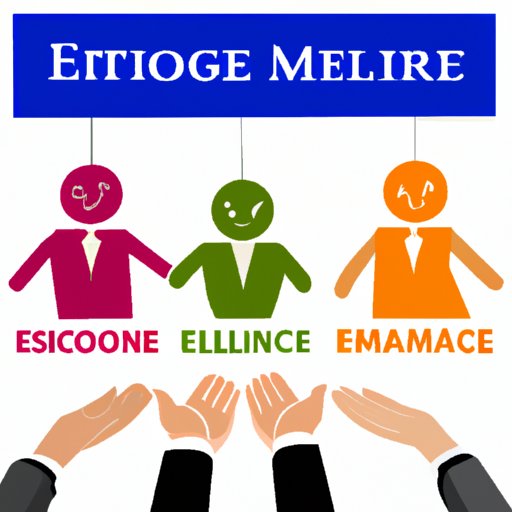Introduction
Making decisions ethically is an important part of any organization’s success. Ethical decision making refers to the process of evaluating and selecting alternatives based on moral considerations. Ethical decision making is important because it helps organizations make responsible choices that have a positive impact on the people they serve and the environment in which they operate. In this article, we will explore why ethical decision making is so important and the benefits it can bring to organizations.

Role of Ethical Decision Making in Creating a Positive Work Culture
Organizations that prioritize ethical decision making often experience improved workplace morale and productivity. Employees who know their employer is committed to ethical behavior are more likely to be engaged and motivated. In addition, ethical decision making can encourage team dynamics by fostering trust and respect among coworkers. When employees feel like their employer is looking out for their best interests, they are more likely to take ownership of their work and collaborate with one another.

Impact of Unethical Decisions on Stakeholders
Unethical decisions can have a damaging effect on customer relationships. Customers expect companies to act responsibly and make decisions that are in their best interest. If customers feel like they are being taken advantage of or their trust has been violated, they may choose to take their business elsewhere. Unethical decisions can also lead to a loss of investor confidence, as investors may be hesitant to invest in a company that is not acting in an ethical manner.
Potential Legal Ramifications of Unethical Decisions
In addition to the potential damage to customer relationships, unethical decisions can also have serious legal implications. Companies that engage in unethical practices can face financial penalties, and in some cases, criminal liability. Additionally, unethical decisions can leave organizations vulnerable to lawsuits from customers or other stakeholders.
How Ethical Decision Making Can Lead To Better Business Outcomes
Ethical decision making can lead to better business outcomes in several ways. First, it can increase efficiency and productivity by encouraging employees to focus on the task at hand rather than worrying about the ethical implications of their actions. Additionally, ethical decisions can lead to improved customer satisfaction, as customers will be more likely to trust and remain loyal to a company that operates ethically. Finally, ethical decision making can lead to cost savings, as organizations can avoid the financial and legal repercussions associated with unethical decisions.

Importance of Ethical Decision Making Within Organizations
Ethical decision making is important within organizations because it promotes an ethical corporate culture. An ethical corporate culture encourages employees to act responsibly and make decisions that are in the best interest of the organization and its stakeholders. Additionally, ethical decision making can encourage responsible business practices, such as avoiding bribery, corruption, and fraud.
Benefits of Ethical Decision Making for an Organization’s Reputation
Ethical decision making is beneficial for an organization’s reputation in two ways. First, it can enhance an organization’s public image by demonstrating a commitment to ethical behavior. Second, ethical decision making can increase trustworthiness among stakeholders, as stakeholders are more likely to trust an organization that acts in an ethical manner.
Conclusion
In conclusion, ethical decision making is essential for organizations to create a positive work culture, maintain customer relationships, and protect their reputation. Ethical decision making can lead to better business outcomes, such as increased efficiency and improved customer satisfaction. Additionally, ethical decision making can promote an ethical corporate culture and enhance an organization’s public image. For these reasons, organizations should prioritize ethical decision making when making decisions.
(Note: Is this article not meeting your expectations? Do you have knowledge or insights to share? Unlock new opportunities and expand your reach by joining our authors team. Click Registration to join us and share your expertise with our readers.)
